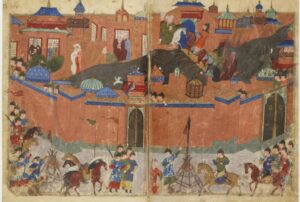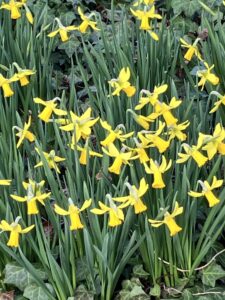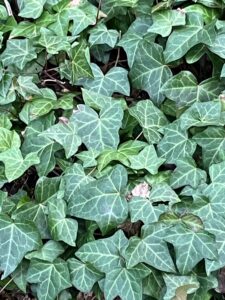
by Dick Hall-Sizemore
One fascinating aspect of the General Assembly is legislation that does not make headlines but is important to a fervent group of Virginians and that could have an impact on the state as a whole.
In recent years, the problem of invasive plants has gained the attention of legislators. In 2009, the General Assembly defined an invasive plant as one “that is not native to the ecosystem and whose introduction causes or is likely to cause economic harm or harm to human health.”
The requirement that an introduced plant must cause harm in order for it to be considered invasive is the key to the definition. That means the daffodils that  are now adding some cheer to my backyard in the middle of winter are not invasive. On the other
are now adding some cheer to my backyard in the middle of winter are not invasive. On the other  hand, the English ivy in my yard is invasive.
hand, the English ivy in my yard is invasive.
That statutory definition does not identify the specific plants that should be considered invasive. Consequently, there could be disagreements among “plant people” and confusion in the general public. Last year, the General Assembly directed the Department of Conservation and Recreation (DCR) to “create a list of invasive plant species” by January 1, 2024. It also prohibited any state agency from planting, selling, or propagating any plant on that list, except under narrowly defined situations. (The Virginia Mercury has described this years-long history in detail.)
For those who are curious, the DCR list of invasive plant species can be found here. The presence on the list of kudzu (Pueraria montana var. lobata) is probably not surprising. Perhaps surprising is the presence of English ivy (Hedera helix), mimosa (Albizia julibrissin), and Bradford pear (Pyrus calleryana) on the list. These are all common ornamental plants that can be bought in nurseries and big box stores.
It has been the goal of plant enthusiasts to prohibit the sale of invasive plants. This year the General Assembly is on track for them to almost accomplish that goal. HB 47 , introduced by Del. Holly Seibold (D-Fairfax) and SB 306, introduced by Sen. Saddam Azian Salim (D-Fairfax), would prohibit the sale by any retail establishment of any plant on the invasives plant list unless the store posts a sign identifying the plant for sale as invasive. The Department of Agriculture and Consumer Services would be responsible for implementation of the prohibition. Violators would be subject to a civil fine of up to $500.

Leave a Reply
You must be logged in to post a comment.